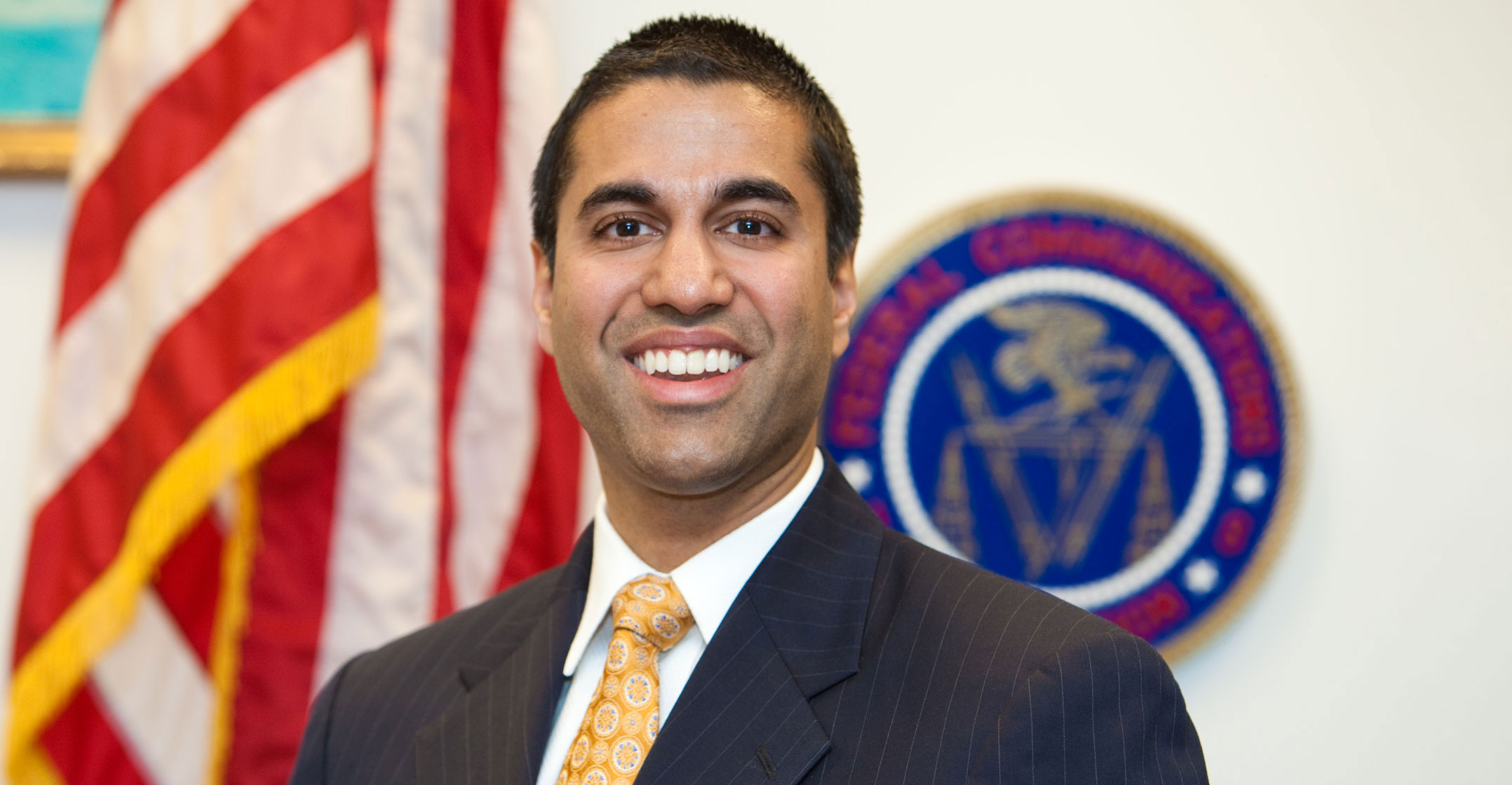
Once upon a time, the US Federal Communications Commission (FCC) could be viewed as a positive model for regulation worthy of emulation. It introduced new ideas into the rules it applied to network operators, thereby stimulating innovation and fostering competition in ways from which consumers benefitted. It helped small entrepreneurial players defend themselves against abuses of market power by their much larger counterparts. Moreover, the political environment within which the FCC operated enabled reasonable legislative compromises and policies to be approved by both Republican and Democrat members of congress, as in the bipartisan Telecommunications Act of 1996.
Sadly, this situation now no longer exists, as illustrated most visibly in the ongoing controversy about network neutrality and the FCC’s recent vote to repeal the rules introduced under its predecessor in 2015. Regulatory decisions in the US are now driven by a combination of an ideology that pays little or no attention to evidence, and a pattern of increasing collusion between regulators and the largest of the companies they regulate.
While these forces were present in the past, they were tempered by a tradition of public service and attention to customer welfare and the consequences of regulations for ordinary citizens or consumers that have been steadily eroded in the 21st century. Similar erosions of the values and principles embodied in the idea of the public interest in the US have occurred in multiple arenas and not just telecommunications, despite efforts under the preceding administration of President Obama to uphold them.
In the new net neutrality regime championed by FCC chairman Ajit Pai, network operators can operate however they wish with respect to their treatment of the varied content, applications and services delivered from multiple sources over their networks, as long as they tell customers what their practices are and notify them of any changes. The size of the fine print in these notifications is not specified.
The justification for this approach — and the claim by the large network operators — is that competitive or market forces will prevent any operator from acting in ways that their customers do not like or will harm them, because if they do these customers will easily be able to switch to another broadband provider. This claim ignores the realities of the imbalance of power between many consumers and their broadband provider as well as the inevitably limited knowledge of the former, the obstacles to their changing provider, and in multiple locations the few if any alternatives open to them. The weakness of competition, thanks to the concentration of the supply of broadband access, is particularly apparent for fixed broadband services.
Net neutrality debate
The controversy about net neutrality has generated a significant number of studies about the merits, disadvantages and consequences of various rules. These studies are profitable for the economists paid to produce them. But they have mainly delivered unhelpful analyses and involved heavy doses of sophistry. They include attempts to demonstrate significant causal links between the level of investment in broadband networks and the presence or absence of specific net neutrality rules, as if there are no other more credible reasons why operators’ levels of investment fluctuate over time, individually and collectively.
Moreover, these attempts assume that the total volume of investment dollars is an intrinsic figure of merit or a worthy goal for maximisation. The net neutrality controversy in the US has also stimulated a debate about whether broadband access should properly be characterised as a telecoms service, so significant rules are justified, or an information service, hence no or only “light” regulation is appropriate.
This debate may be looked on in future as an example of a subject of inquiry the pursuit of which is of no value, comparable to the medieval debate about how many angels can dance on the head of a pin.

The evaluation of proposed regulations should focus on their impact on other goals much worthier of consideration. These goals include: (1) Facilitating the deployment of new technologies, to reduce the investment required to deliver a given network capacity or deliver “more bang for the buck” in terms of services; (2) Minimising counterproductive administrative hysteresis that may unreasonably impede or delay these deployments and increase their costs; (3) Lowering obstacles entrants may face from incumbents in commercialising their innovations; and (4) Increasing customers’ ability to navigate and choose between competitive alternatives.
Unfortunately, two issues that have not been given adequate attention in the net neutrality controversy in the US are the long-term impact of alternative rules on: (1) Consumer welfare, given the well documented consumer-hostile behaviour of major network operators such as AT&T and Comcast over many years; and (2) The future of small companies including those that have yet to be founded, although entrants have historically been the source of major changes in markets and commercial innovation.
The assumption embedded in the recent net neutrality decision that US operators can “do no evil” ignores the long history of how they have in practice treated consumers, for example by imposing unjustified occasional but regular incremental increases in fees or charges that are not cost based and hence flow through directly to the bottom line (for example, $1/month translates into $120m in additional annual profit for a customer base of 10m subscribers) and by requiring customers to agree to settle any disputes via arbitration giving up the right to join class action suits.
The root causes of this deterioration of common sense and pragmatism in US telecoms regulation and indifference to consequences for many customers are manifest in many other spheres in the US, in some cases even more strikingly, such as health care. There is for example a law prohibiting government-funded health care programmes from negotiating drug prices with pharmaceutical companies. This law was in effect written by these companies’ lobbyists and justified by them on the grounds that such negotiations would lead to a reduction in the choices available to US consumers. This breath-taking assertion overlooks the obvious consequence of large and continuing increases in the prices of some drugs on their affordability.
The causes of the weakening of ethical restraints and the decline of pragmatism in the formulation of policies and regulations evident in the US have deeper, broader and more durable roots than the phenomenon of President Donald Trump. He is more a symptom than a cause (even if an accelerant and magnifier) of the dysfunction in US democracy. The dysfunction is embedded in the dynamics and shifting balance of forces within US democracy. It reflects the disturbing dominance of the combination of a rigid ideology with the increasing concentration of power in the political and judicial arenas within the few hands of the most financially powerful special interests. These interests can act with minimum and in some instances no independent checks or balances on their actions.
There is a well-trodden path taken by young staffers up to commissioners and other decision makers, who move directly from the FCC (and other regulatory agencies) into very lucrative positions in the large companies they regulate, or the major law firms these companies use to make their arguments in court and in front of the regulator. Considering the expectation and hope that a stint in a regulatory agency will be a way station to highly paid employment in a regulated company, why would anyone want to take a visible and strong position opposing and potentially thwarting the goals of a future employer however selfish and self-interested?
Rigid ideology
Major components of the rigid ideology used to justify a no or “light” (equals ineffective) regulatory regime include:
- The government can do little if any good and only harm, apart from military expenditures and other allegedly security-related initiatives;
- The private sector does best for society if left unfettered or free to act at its discretion in its behaviour and the choices it makes, thanks to the beneficent consequences of “market forces”.
Intellectual respectability is afforded to these views by quoting noted economists such as Adam Smith and the Nobel Prize winner Milton Friedman. Conveniently overlooked are aspects of the thinking and positions of these economists that present a much more balanced and nuanced view of the respective responsibilities of government and of business, and of human nature and the meaning of freedom. Adam Smith, the father of modern economics, is often cited as arguing for the “invisible hand” and free markets. Firms, in the pursuit of profits, are led, as if by an invisible hand, to do what is best for the world. But unlike his followers, Smith was aware of some of the limitations of free markets, and research since then has further clarified why free markets, by themselves, often do not lead to what is best.

The reason that the invisible hand often seems invisible is that it is often not invisible, but absent. Whenever there are “externalities” — where the actions of an individual or organisation have impacts on others for which they do not pay, or for which they are not compensated — markets will not work well. Some of the important instances of market failures are the result of long understood environmental externalities. Markets, by themselves, produce too much pollution. Markets, by themselves, also produce too little basic research. The government was an essential player (in financing and other respects) in many important scientific breakthroughs that enabled the development of large markets, including the technological bases of the Internet and the first telegraph line, and many biotech advances.
Externalities are pervasive whenever there is a market characterised by imperfect information or imperfect risk — that is, in practice almost always. Government plays a role of varying weight in many markets, or indeed in all, given a minimum requirement to enforce contracts and property rights. Some regulation beyond this minimum is required to make many markets work. Debates about regulation should focus on how to find sensible and proportionate balances between the roles of the market and government (and the third “sector” — governmental non-profit organisations), avoiding disputes that demonise or sanctify the character of one or the other as intrinsic properties derived from basic and immutable laws of nature, human behaviour or economics. In the real world, both the public and the private sectors are needed. Both are subject to and may produce undesirable results because of human frailties and strengths. They complement each other. The desirable balance or weight of the government differs from time to time, from place to place, and from market to market.
A quote from Milton Friedman is often used to justify unregulated corporate behaviour: “…There is one and only one social responsibility of business to use its resources and engage in activities designed to increase its profits so long as it stays in the rules of the game, which is to say, engages in open and free competition, without deception or fraud.” However, this quote contains the seeds of justifiable serious concern about the behaviour and actions of powerful corporations in the absence of externally applied checks and balances (regulation). In the real world, these corporations deliberately apply considerable resources to lobbying aimed at establishing and changing the “rules of the game” in their favour. In other words, the rules of the game are not exogenous factors to which corporations are responding. They are rules they themselves endeavour, and often successfully, to shape or even distort in their favour. They are to a significant degree endogenous. The often-invoked “invisible hand” used to characterise “market forces” is not a universal feature of the universe or human society or economics to which everyone is subject, like gravity, which can be harmful or helpful depending on how well its effects are understood, anticipated and exploited. The “invisible” hand can operate more like the skilled hand of a pickpocket stealing value from the unsuspecting or unwary, such as victimised customers or others unprotected by reasonable or proportionate regulation.
The supporters of the currently prevalent ideology in US telecoms argue that its correctness is demonstrated by the superior quality (price/performance) of the broadband services available to US customers compared to other countries. This characterisation is false. Not only a few Asian but also several European countries score significantly better than the US, which typically occupies a position between 10th and 15th in broadband league tables depending on the criteria used and the source of the comparison.
Implications for South Africa
Today. unlike in the past, South Africa has little to learn from the US about how to mitigate and avoid the toxic consequences of collusion between powerful financial interests and political power, from which it has also suffered. This collusion undermines the ability of checks and balances in the legal and regulatory arenas to overturn unethical decisions by large corporations that harm customers, employees and much less financially influential competitors, or to enforce penalties that are available to discourage bad behaviour, and apply incentives to encourage behaviour that pays decent respect to the interests of others.

Several countries in the European Union, as well as the European Commission, offer better models than the US to consider in deciding how to forge reasonable compromises between the interests of suppliers, customers and employees in the telecoms arena where these interests compete. These European models are far from optimum (and practices and outcomes still vary widely from one EU country to another despite frequent references to a single market), while circumstances and social objectives in South Africa justify specific aspects of regulation that are customised for its environment, and are not simply copies of European models.
Nevertheless, European approaches are more relevant in the context of the hopes and goals of South Africa than the US. They take more explicit account of the need to balance sensibly the value and potential harm of regulation for large and small suppliers, their employees and investors, and consumers and other customers. In contrast, the US approach argues that allowing “market forces” to operate without significant supervision in telecoms produces the best outcomes for all. In practice, the US is operating in a manner similar to the law as criticised by the French author Anatole France: “…The law, in its majestic equality, forbids the rich as well as the poor to sleep under bridges, to beg in the streets and to steal bread.”
- Martyn Roetter has decades of experience in the telecommunications and high-tech industries, working in the Americas, Europe, the Middle East, Africa and countries in the Asia-Pacific region. He has provided advice to private-sector clients and investors on business and technology strategies and tactics, as well as analyses of regulatory and policy issues for governments. While based in the US, France and the UK, he worked as a partner in several consulting companies, including Arthur D Little, PA Consulting and Decision Resources. Most recently he has operated with his own sole proprietorship, MFRConsulting. A member of the IEEE and IEEE Communications Society, he served for several years on the board of a supplier of wireless equipment, where he was chairman of the compensation committee. He holds a doctorate in physics from Oxford University and is a senior adviser to the South African-based BMIT




